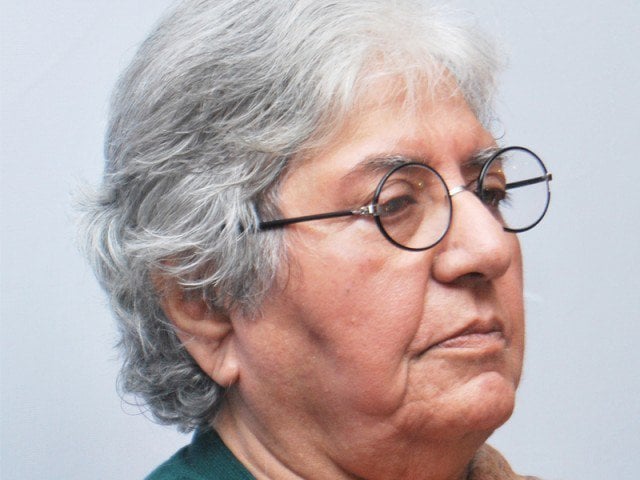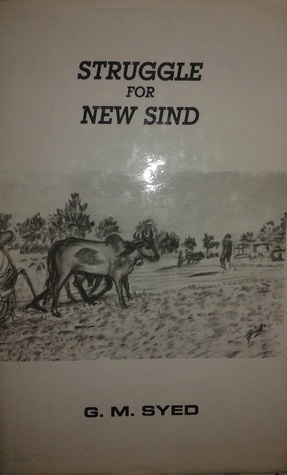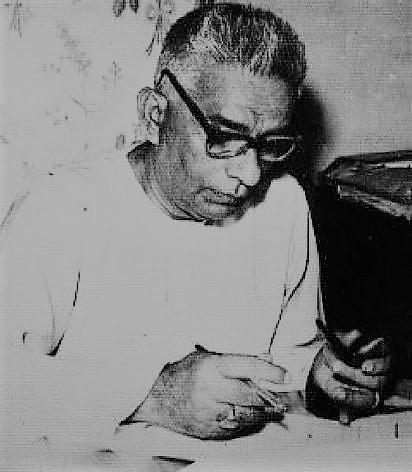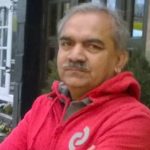
The army may not be visibly present, it is still behind all political actions and maneuvering – Dr. Hamida Khuhro
[Translator’s note: This is a translation of renowned historian Dr. Hamida Khuhro’s comprehensive interview, originally published in the Sindhi magazine Nao Niapo, Karachi in May, 1986. The interview panel consisted of Advocate Masood Noorani (MN), Journalist Nasir Aijaz (NA) and Faqir Muhammad Lashari (FM), with Mansoor Qadir Junjo’s assistance to the interviewers. Masood Noorani also contributed observation notes from his initial meeting with Dr. Khuhro, which were used as a preamble to the interview. The interview was later included in an anthology that contained interviews of Dr. Khuhro, published in various Sindhi newspapers and magazines.
In 2021, Dr. Hamida Khuhro Foundation, Sindh (Karachi-Hyderabad) published Nao Napo magazine’s interview as a separate booklet with a title of ‘Tareekh Ji Amhon Samhon’ (Face-to-Face with History). The booklet includes a preface by Mansoor Qadir Junejo. Zaffar Junejo]
Our first task should be to organize our people. We are currently unorganized, undisciplined, and scattered
FM: Should Sindh’s struggle for national rights be focused solely on the bureaucracy or should it also target imperialists? In other words, should our struggle be against bureaucracy?
HK: Our first task should be to organize our people. We are currently unorganized, undisciplined, and scattered. Many of us are illiterate. While we talk about nationalism, it has not taken root in the minds of rural people. But, they are clear about the interests of their village, caste, community, or brotherhood, but they don’t have a clear idea about nationalism.
Only a small number of educated individuals are clear about nationalism. Therefore, our first priority should be to organize the villagers. We must not forget that in sociological terms a village is our first line of defense. Serious nations have always found their way to resistance. Algeria found its way, and even Sri Lanka explored mechanisms of resistance. However, in Sindh, only the Hurs launched the struggle, and they received support from the people who helped them in various ways, even by going underground. But today, compared to those times, no one is willing to support or protect those who are struggling for the national cause. There is a lack of such spirit presently. We should honestly support the people who are fighting for the national cause, and through that support, the struggle will advance and flourish. We should realize that no one will come from outside to support us. Initially, we should organize and gather success in the confederation. In this regard, the first task would be intellectual efforts such as reading, writing, and organizing, and then we need to evaluate where we stand.
Serious nations have always found their way to resistance.
FM: You mentioned that organization is important, but the common man faces social exploitation and is therefore more aware and active. In this regard, I could quote their participation in the MRD Movement, where their participation was spontaneous but sacrificial, and people were killed. At that time, educated people and political leaders were restrained, while the common man took the forefront. How do you assess this staunchness from a social and historical perspective?
 HK: You are right, and I agree that at that time, a strong sense of national consciousness was the reason behind their actions. In fact, there was anger against the army, and they were present in every village. The people were insulted and killed. We should also look at the situation from a different perspective. During the times of Yahya Khan and Ayub Khan, the military was mainly active in urban Sindh. It was during that time that people encountered the military directly in their villages and neighborhoods. Interestingly, when the military retreated or reduced its presence, the people also stepped back. So, it was a spontaneous reaction. Now, it is our duty to educate people that although the army may not be visibly present, it is still behind all political actions and maneuvering. Currently, some organizations are active in addressing class issues and exploitation. However, I believe that at present, our priority should be the unity of the nation, and once we achieve that, we can address other matters. If we don’t like a Wadero, we can take appropriate action against him later. But in the present circumstances, we have to be united, and there is no other option.
HK: You are right, and I agree that at that time, a strong sense of national consciousness was the reason behind their actions. In fact, there was anger against the army, and they were present in every village. The people were insulted and killed. We should also look at the situation from a different perspective. During the times of Yahya Khan and Ayub Khan, the military was mainly active in urban Sindh. It was during that time that people encountered the military directly in their villages and neighborhoods. Interestingly, when the military retreated or reduced its presence, the people also stepped back. So, it was a spontaneous reaction. Now, it is our duty to educate people that although the army may not be visibly present, it is still behind all political actions and maneuvering. Currently, some organizations are active in addressing class issues and exploitation. However, I believe that at present, our priority should be the unity of the nation, and once we achieve that, we can address other matters. If we don’t like a Wadero, we can take appropriate action against him later. But in the present circumstances, we have to be united, and there is no other option.
MN: Could we shed some light on your political role?
HK: Welcome.
I understand that Jeay Sindh is a mechanism to organize Sindh.
MN: Initially, you were independent in terms of political ideology, but lately, you aligned with G.M. Syed. Why did G.M. Syed attract you, and why didn’t you launch your own organization?
HK: I found that Jeay Sindh was the only active nationalist movement at that time. The students were vibrant and active, and they had a strong sense of national character. They were self-motivated and not dependent on anyone. Jeay Sindh provided them with a protective platform, and that is why I aligned myself with them. I believe that the majority of them have a positive national character. I enjoy working with them and having consultations. As for forming my own organization, I don’t have a longing for power or leadership. I understand that Jeay Sindh is a mechanism to organize Sindh.
Youth today is not as active as they were in the past
MN: Have you succeeded in your objective?
HK: No, not yet. There is no doubt that people have become more aware in the last ten years, but the youth today is not as active as they were in the past. Unfortunately, our universities and academic institutes are witnessing more student feuds, which is a tragedy for Sindh.
MN: What is your opinion about G.M. Syed, who founded Pakistan and now struggles against it? His character could be more depicted by the couplet of Shah Latif, ‘Wadhi Jin Wadhyas, Wari Se’e Vajj Thiyas.’
HK: G.M. Syed went through different phases in his life. He started as a local politician, then became a leader of the Congress, and later championed the Muslim League. Now, he has given us a vision of Sindhi nation. So, I am with him and support his ideas.
After the formation of Pakistan, the true designs of Punjab became evident, and G.M. Syed started speaking about the Sindhi nation
NA: Even before the formation of Pakistan, there were differences between G.M. Syed and Jinnah. In 1947, G.M. Syed organized a meeting under the banner of the Muslim Jamait, and in 1948, the convention of the Muslim Jamait was presided over by Khan Abdul Ghaffar Khan. In that meeting, G.M. Syed chalked out a theoretical frame of Sindhi nation. How do you view this change?

HK: As we discussed earlier, in Sindh, people joined the Muslim League in reaction to the growing power of Hindus who were aligned with the Congress. They wanted to protect their interests, and G.M. Syed and his friends tried to form a party similar to the Punjab’s Unionist Party. However, the majority of Hindus remained loyal to the Congress or became its members. The Muslims realized that Hindus had the backing of an All-India level party, and they had become too powerful. So, in reaction, they invited the All-India Muslim League. In 1938, the Muslim League session was held in Karachi. But it was only Pir Ali Muhammad Rashidi who warned about the danger of Punjab’s influence. He was far-sighted and understood the future consequences. However, after the formation of Pakistan, the true designs of Punjab became evident, and G.M. Syed started speaking about the Sindhi nation.
MN: What is your current political position in Jeay Sindh? Are you G.M. Syed’s Jannasheen (heir)?
HK: (She giggles and utters some words that are inaudible) It is not accurate to say that I have taken over from G.M. Syed.
My first priority would be to make Jeay Sindh the most organized and disciplined movement
MN: Okay, let us phrase it differently. If you were called upon to lead and manage Jeay Sindh, what would be your priority? Ultimately, someone has to come forward and lead.
HK: (She becomes serious) My first priority would be to make Jeay Sindh the most organized and disciplined movement. I would transform it into a representative organization and establish it as the sole representative of the Sindhi cause. Then, I would seek understanding and agreement with smaller parties or groups that are also fighting for Sindh’s rights. This agreement would eventually lead to the formation of a united front. There might be compromises along the way, but the larger cause would guide us. I would prioritize gathering and preparing awareness and educational material for rural people. But, the key is to establish discipline and unity within Jeay Sindh’s ranks. Consultation would play a significant role in formulating our goals and actions. We aspire for complete freedom, and if Pakistan agrees to implement the 1940 Resolution, that would be fine. Otherwise, we will explore other avenues for achieving our objectives. (Continues)
Click here for Part-I and Part-II (Preamble) – Part-!II , Part-IV , Part-V , Part-VI , Part-VII , Part-VIII
____________________
 Dr. Zaffar Junejo is a historian and a writer, having earned Doctorate from the Department of History University of Malaya, Malaysia. Presently, Mr. Junejo is associated with the European University Institute, Florence, Italy. Apart from scholarly contribution, he also writes for popular media. He could be accessed at: Email junejozi@gmail.com, Cell/WhatsApp +92 334 045 5333 Skype Zaffar.Junejo Facebook facebook.com/zaffar.junejo
Dr. Zaffar Junejo is a historian and a writer, having earned Doctorate from the Department of History University of Malaya, Malaysia. Presently, Mr. Junejo is associated with the European University Institute, Florence, Italy. Apart from scholarly contribution, he also writes for popular media. He could be accessed at: Email junejozi@gmail.com, Cell/WhatsApp +92 334 045 5333 Skype Zaffar.Junejo Facebook facebook.com/zaffar.junejo